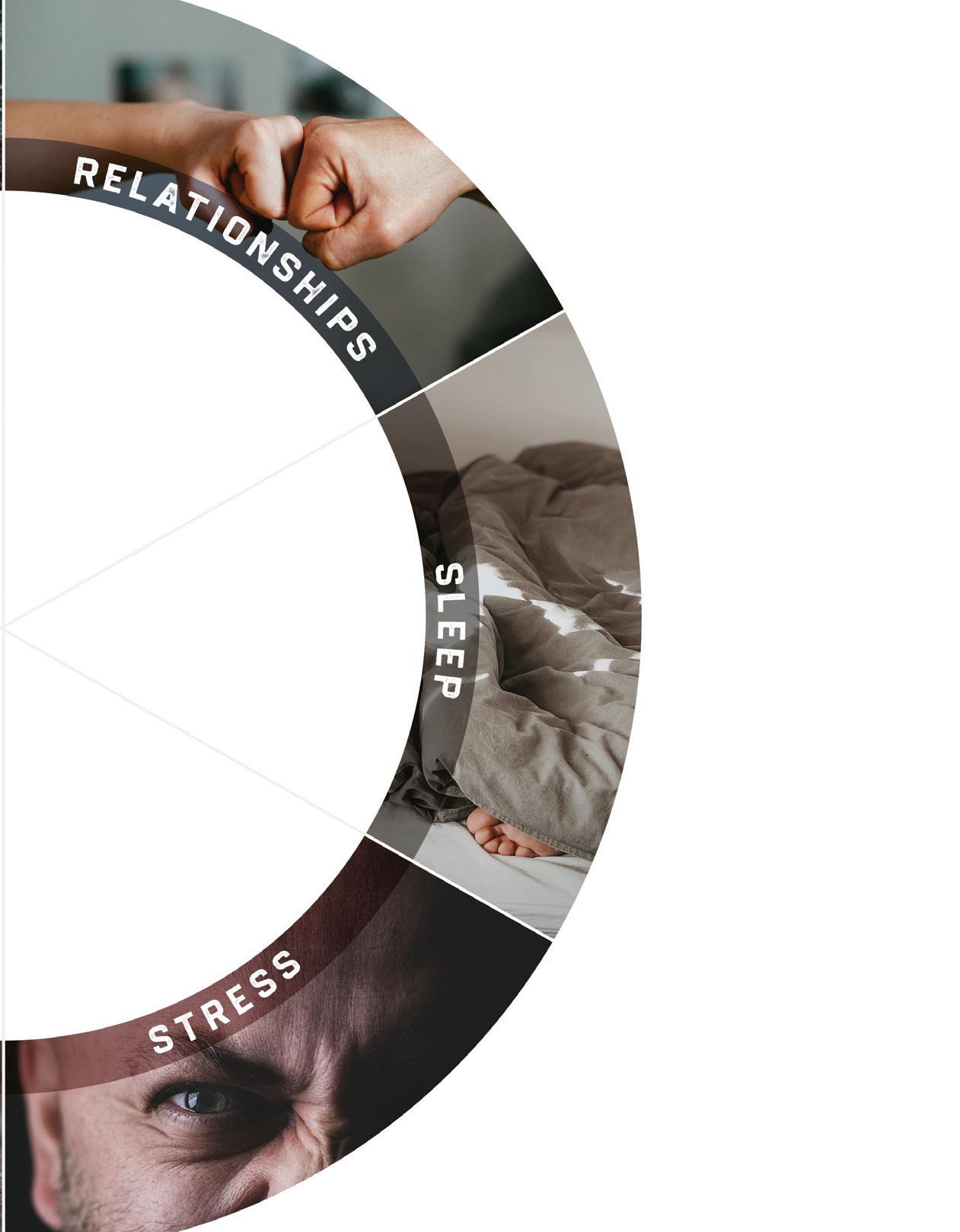
4 minute read
ADDING LIFE TO YOUR YEARS
Adding life
To Your years
By Simon Matthews, CEO Wellcoaches Australia & Singapore
Not so long ago, keeping your health in top shape was generally a matter
of doing your day-to-day work. Most people had manual labor jobs that involved a lot of physical activity and they slept well at night simply because they were tired. There were no electronic devices to keep them sedentary or disturb their sleep. Pre-packaged processed meals didn’t exist and food was either grown on their own property or traded with neighbors.
It’s a very different story now, and staying healthy means thinking carefully about the daily choices that we make. Today, the illnesses most likely to make you seriously sick, or even cause death, are chronic or “lifestyle” diseases. These include heart disease, stroke, diabetes, high blood pressure, high cholesterol, respiratory disease, arthritis, obesity and a number of cancers.
2
Nearly half the US population has at least one chronic disease resulting in about 70 percent of all deaths.
The good news is that there are steps that you can take right now to help keep you healthy and prevent chronic disease or combat it, if it’s something that you’re already dealing with in your life. I’m speaking about the principles of lifestyle medicine. Lifestyle medicine revolves around six
straightforward guidelines that you can either introduce to or increase in your day-to-day life.
1
The general recommendation for pretty much every human on the planet is to do at least 150 minutes per week of moderate intensity physical activity. Moderate intensity is easy to measure: it means you can only just keep a conversation going while you’re exercising.
Eat a whole food, plant-based diet. What does this mean? It means as far as you can, eat foods that look the way they did when they were grown. Minimize highly processed foods. While processing involves a lot of different things, depending on the food that you’re talking about, it typically means that some elements of the food that are beneficial to our health (such as dietary fibre) are stripped out and other things are added (frequently salts and sugars).
Any addictive substance can be harmful to health, so eliminating tobacco altogether can drastically lower your risk of chronic disease. Being careful about alcohol intake will do likewise.
3
6
Having and maintaining really good relationships with family and friends helps to keep us psychologically and physically resilient. Relationships really matter and we all benefit when we take the time to cultivate positive relationships with family and friends. Remember: there’s a strong link between social isolation and mortality.
This is the biggest challenge for many people, particularly if you do any sort of shift work, because trying to establish a regular sleep pattern can be very difficult. Every so often we read about people who seem to thrive on not much sleep at all – historical figures such as past presidents, prime ministers or famous inventors come to mind. But here’s the thing: these people are the exception, not the rule and most of us need seven to nine hours per night of good, restorative sleep.

Learning healthy strategies to manage day-today stresses as well as the really big events in life helps us to stay healthy. Not managing stress not only impacts our mental health and well-being but also our physical health. Did you know there’s a clear association between poor stress management and obesity?
4
If you are already managing most or all of these areas
of your life well – congratulations! You’ve taken a big step towards not only minimizing your risk of chronic disease, but also maximizing your opportunity to thrive and flourish in your daily life. If you’re reading this article and asking yourself “Where do I even begin?” or “I know all this – I just can’t seem to keep it going in my life,” here are two suggestions to get you started:
First, consider using a health coach the same way you’d use a personal trainer. Health coaches are expert facilitators and cultivators of behavioral change. Health coaching helps you to identify not just what matters to you but why. “Why?” is really the big motivator of behavior change. If you already know about health coaching and would like to take a step towards improved vitality, energy and 5 enjoyment in your life, look for a nationally board-certified coach using the search tool at nbhwc.org – the website of the National Board for Health and Wellness Coaching. Or, if you’re not sure if a coach is for you, take a few minutes to do a simple audit of your lifestyle to help identify where some help might be most valuable. Start by looking at the six categories featured here and rate yourself on each one using a scale of 0 to 10 with 0 meaning “Not managing this area of lifestyle well at all” and 10 meaning “Acing it.” Now rank them in order from the area you’re managing best through to the area where you have the most opportunity for change. Pick somewhere to start – it literally doesn’t matter where. Improvement in any category










